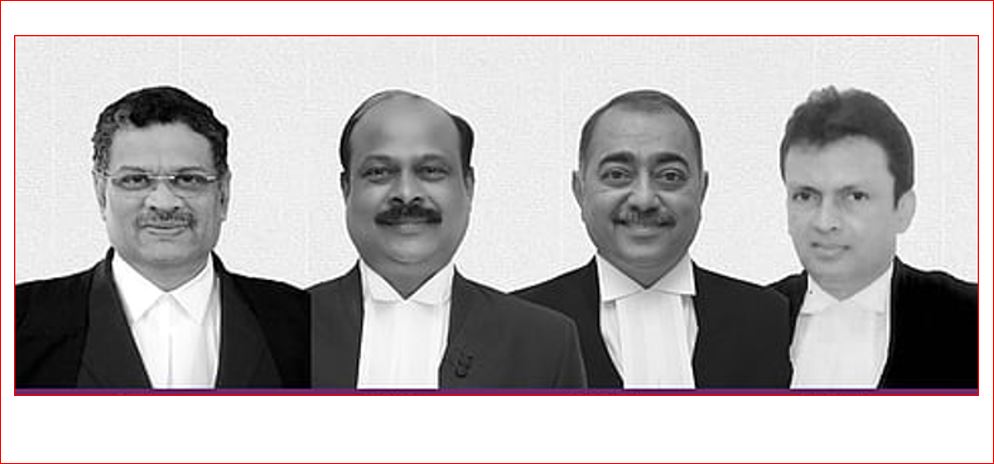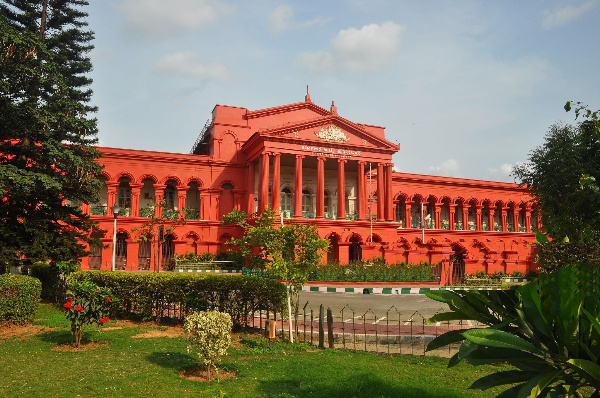Live streaming and recording of Court proceedings in Karnataka from 1 January 2022.
- 02-January-2022 01:24
In exercise of the powers conferred by Article 225 and 227 of the Constitution of India and
Section 54 of the States Reorganisation Act, 1956 (Central Act 37 of 1956) read with Sections 122
and 129 of the Code of Civil Procedure, 1908, and Sections 19 and 21 of the Mysore High Court Act, 1884 (I of 1884) and all other powers thereunto enabling, the High Court of Karnataka, with the
previous approval of the Government of Karnataka, has promulgated and issue the following Rules with
respect to practice and procedure to be followed to imbue greater transparency, inclusivity and foster
access to Justice.
The Rules ''Karnataka Rules on Live Streaming and Recording of Court
Proceedings, 2021'' will come into force from 1 January 2022.
Cameras will be installed in the courtroom covering at least five angles; one towards the
Bench, the second and third towards the advocates engaged in the concerned matter, the fourth
towards the accused (where applicable) and the fifth towards the deponent or witness, as
required. In the event that the Court has employed an electronic evidence presentation system, an
additional feed shall be captured there from. A remote-control device shall be provided to the presiding judge on the Bench to pause or stop
the Live-streaming at any time. Advocates, witnesses, accused, or any other person permitted by the Bench, shall use
appropriate microphones while addressing the Court. In so far as a Remote Location is concerned, appropriate hardware will be deployed to the
extent practicable, bearing in mind the provisions made in the aforementioned sub-rules. Where Proceedings are conducted through web links, including video conferencing services,
appropriate software and hardware will be employed, if necessary, to generate an integrated
feed for Live-streaming.
The following will be excluded from Live-streaming namely,-
(i) Matrimonial matters, including transfer petitions arising there under.
(ii) Cases concerning sexual offences, including proceedings instituted under section
376, Indian Penal Code, 1860.
(iii) Cases concerning gender-based violence against women.
(iv) Matters registered under or involving the Protection of Children from Sexual
Offences Act, 2012 (POCSO) and under the Juvenile Justice (Care and Protection
of Children) Act, 2015.
(v) In-camera proceedings as defined under Section 327 of the Code of Criminal
Procedure, 1973 (Cr.PC) or Section 153 B of the Code of Civil Procedure, 1908.
(vi) Matters where the Bench is of the view, for reasons to be recorded in writing that
publication would be antithetical to the administration of justice.
(vii)Cases, which in the opinion of the Bench, may provoke enmity amongst
communities likely to result in a breach of law and order. Recording of evidence, including cross-examination.
(ix) Privileged communications between the parties and their advocates; cases where a
claim of privilege is accepted by the Court; and non-public discussions
between advocates.
(x) Any other matter in which a specific direction is issued by the Bench or the Chief
Justice.
PDF of Rules enclosed.



